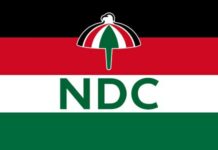
The President, Nana Addo Dankwa Akufo-Addo, has said that government was taking deliberate steps and efforts to refocus the investment priorities of the country, adding that it was also taking action to mobilise the resources necessary for the growth of those priority sectors.
“This is because we are determined to transform Ghana, from a mere producer and exporter of raw material, to a value added industralised economy, which can provide opportunity, jobs and prosperity for all, especially the youth of the country,” he said.
President Akufo-Addo was speaking yesterday at a ceremony to commission an infant cereal manufacturing plant at the Tema Industrial Area, built by Nestlé Ghana.
At the cost of GH¢175 million, the 6,900 metric tonnes capacity plant, the President said, would create some 800 direct jobs. The plant would also expand the production capacity of the company.
That the product from this plant would serve 22 markets of countries in Central and West Africa, was a timely investment.
He said the successes chalked by Nestlé Ghana should motivate other private sector industries in the country to aspire to the height of developing global brands.
PARTNERSHIP
The President reiterated that the combined effects of the COVID-19 and the Russian invasion of Ukraine had negatively impacted the country’s economy.
Meanwhile, he believed that the challenges from the crisis were a clear indication the country must see to the expansion of the production capacity of the manufacturing sector to add value to economic endowment.
He was confident that the private sector, together with the government, would rise up to the occasion with innovative ideas to help the economy rebound strongly.
LACK OF ACCESS
President Akufo-Addo said one of the challenges to the industralisation drive was the lack of access to the expanded markets, and thus urged the private sector in Ghana to take full advantage of the benefits of the African Continental Free Trade Area (AfCFTA).
ICON IN GHANA
Minister for Trade and Industry, Alan Kyerematen said that over 60 years, Nestlé has become an icon in Ghana’s manufacturing sector, citing the commissioning of the new plant is a further demonstration of the company’s commitment towards the socioeconomic development of Ghana.
The Ministry of Trade and Industry, according to the sector minister, recognizes the importance of attracting private sector operators to invest in the productive sectors of the Ghanaian economy.
He asserted that the new cereals manufacturing plant will go a long way to boost the government’s strategic efforts aimed at import substitution, especially in sectors where there is local capacity for value addition.
In his welcome address, the Managing Director (MD) of Nestlé Ghana, Georgios Badaro, outlined the growth of the company since it emerged in 1957.
He commended Ghanaians for shown love to the company, the reason they are still afloat, and are able to expand their expansion. He said the company has over 1,000 employees.
He shared that almost 90% of their products in Ghana are fortified with micro-nutrients, aimed at addressing some of the nutrition challenges.
The company last year, made a capital investment of GH¢175.4 million to invest in the increase of capacity of Cerelac by 6,700 tonnes per year, the MD said, adding that 98% of staff are Ghanaians.
He announced the additional investment of GH¢53million was in the offing, stating that the new factory symbolizes the confidence Nestlé has in the bright future of Ghana.
Ghana is Economic Center
The Chief Executive Officer of Nestlé Central and West Africa, Mauricio Alarcon said a business that looks and invests beyond current generation is a business for the future.
According to him, Ghana is a key economic center for Africa, hence, their commitment to continue to expand their production in Ghana for the benefit of the whole Central and West Africa.
Nestlé, he said, is committed to help building thriving communities and improving livelihoods by unlocking the power of food.
Over 150,000 farmers in Ghana and across the Central, West Africa have benefitted from capacity building and economic empowerment on Nestlé products.









